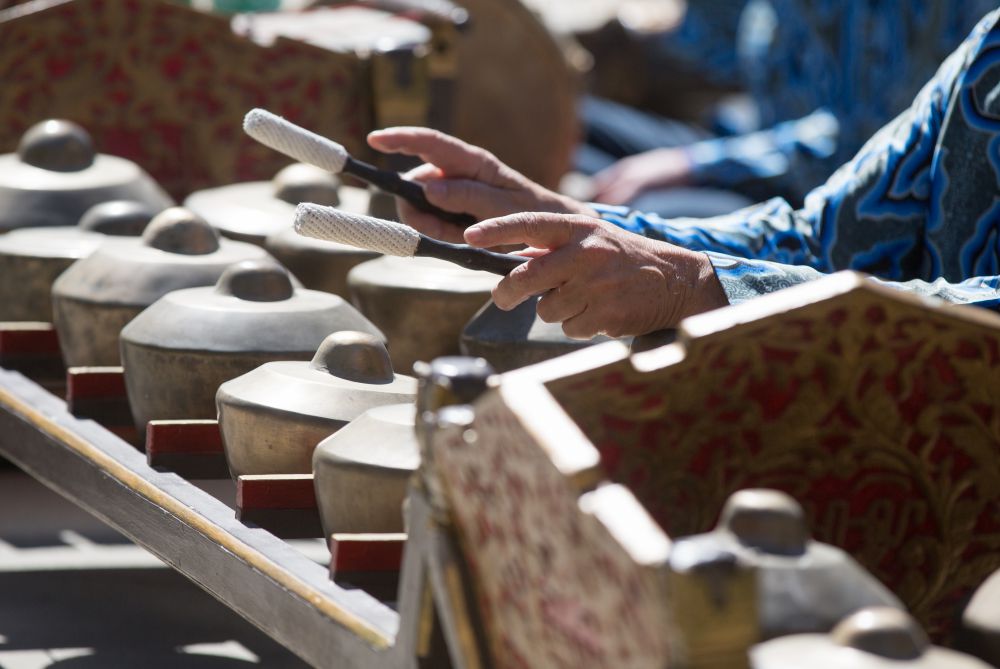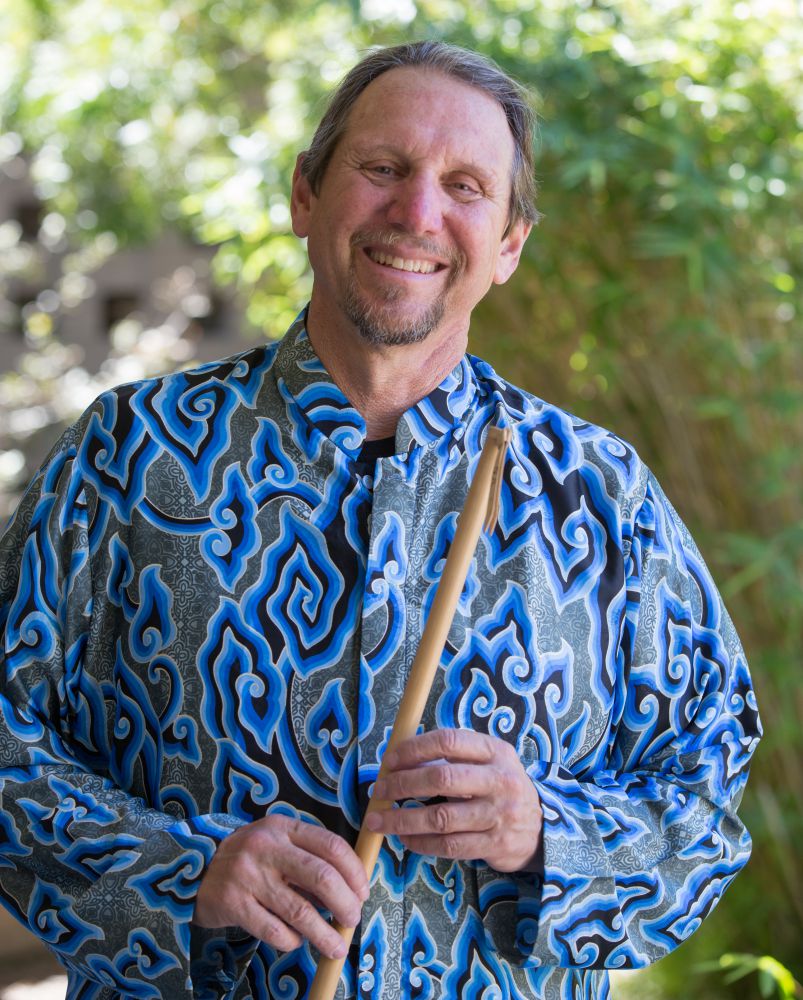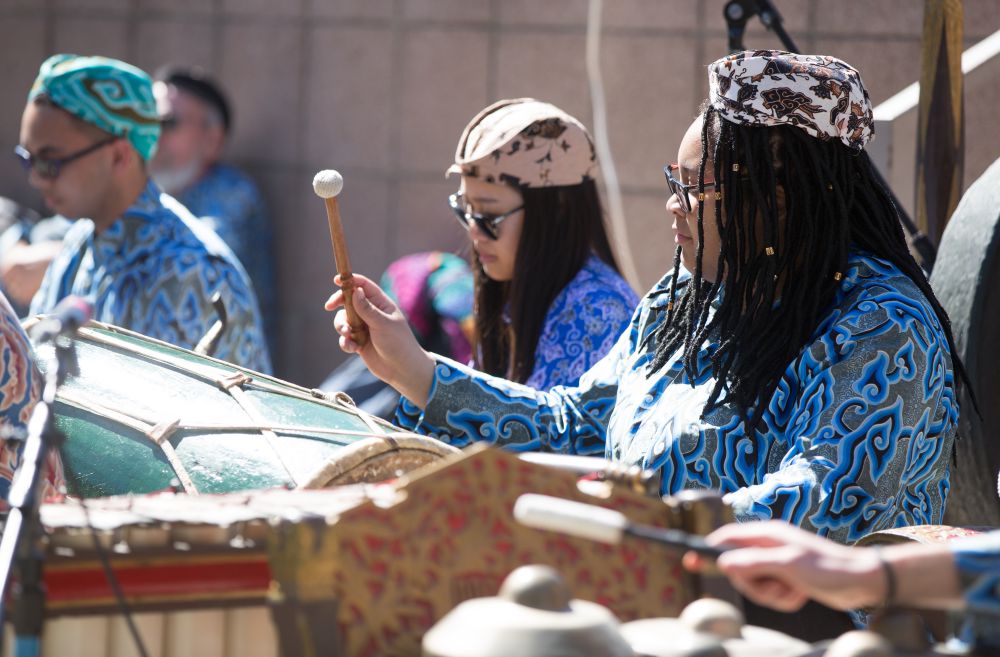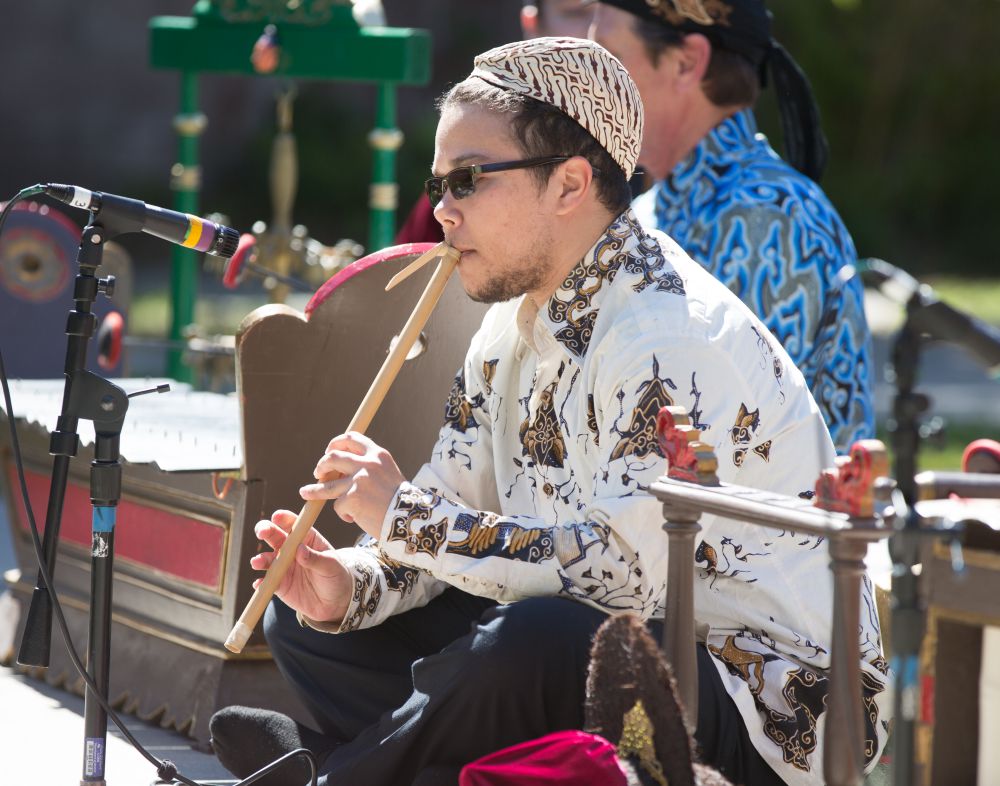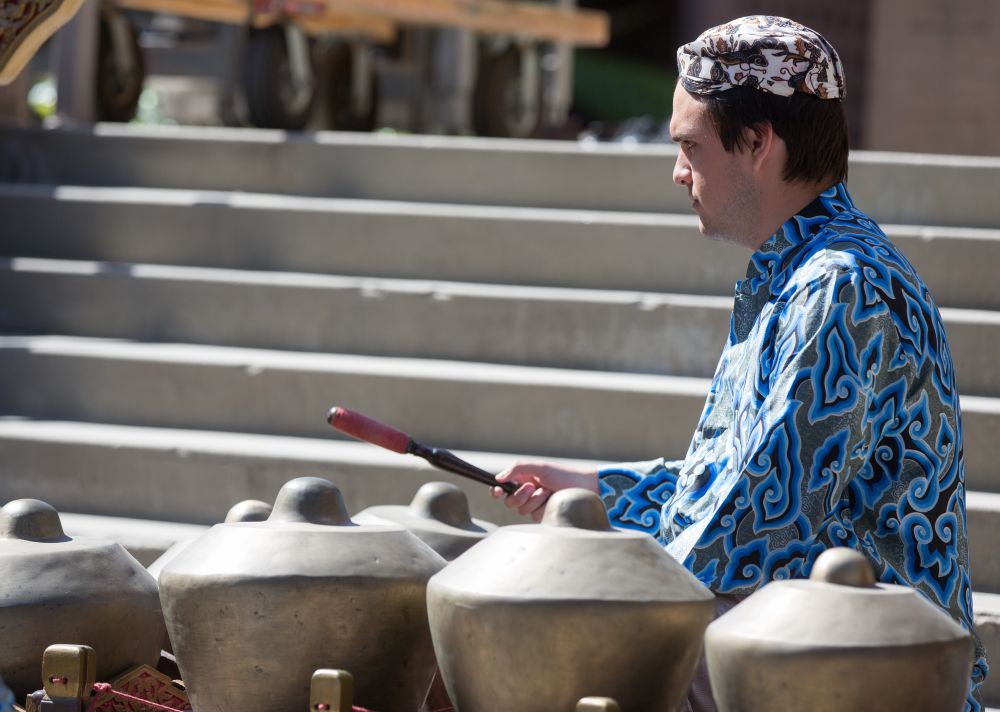Gamelan of Thrones
Richard North was just a young surfer when he first visited Cirebon, the oldest of Indonesia’s many ancient kingdoms. He’d come as a student of gamelan, the country’s traditional ensemble of bronze and wooden percussive instruments. He had no idea he would, two decades later, come to help rescue the kingdom’s music from oblivion and be revered as a reviver of their musical traditions.
“I tell them very freely,” said North, who has led UC Santa Barbara’s gamelan ensemble since 2015, “ ‘I’m really grateful that you guys make such a great deal about me over here because I’m just a regular person in my own country. I’m just a guy who teaches music.’ ”
North’s journey from gamelan student to respected teacher unfolded over 40 years. During a series of visits to Cirebon stretching into the 1980s, he learned a good number of pieces unique to the kingdom, including some considered sacred to the sultan and the palace. And then life intervened and he got married. It would be 17 years before he returned.
“When I came back, much to my sadness, a lot of the old music had been lost,” North said. “A lot of the traditional arts, which are usually handed down orally, were not being transferred to the next generation.”
North became a link to their vanishing tradition.
“They said, ‘Oh, good, you’re back. Do you know this piece? Do you know that piece? And the last people who played those pieces, they died. You know how to do that?’ ”
As it happened, North had recordings and had made notations for several palace and village gamelan repertoires that had been lost. He shared them with Cirebon musicians and, bit by bit, the traditional pieces were reborn.
“And so I go every year or two and bring back these musical treasures for about a month,” he said. “It’s been quite a journey, and very gratifying to see young people really returning to tradition.”
North’s connection with Cirebon only deepened after he took over as director of UC Santa Barbara’s ensemble in 2015 and introduced the kingdom’s music. That makes the campus group just one of three ensembles in the world — one in Melbourne, Australia, and the Santa Barbara community group Sinar Surya — that plays traditional Cirebon gamelan.
“UCSB gamelan ensemble is playing an important role in the revival of the traditional music of the Cirebon kingdom, because we play it,” said North, who began teaching gamelan at UC Santa Cruz in 1974. “And every time we have a concert or something the artists in Cirebon are waiting to see what we do. It’s not done in some sort of academic vacuum,” he continued. “We are very connected to them and they are to us.”
That close relationship will be renewed in August when North, his wife and a few UCSB students will travel to Cirebon, on the north coast of Java, for the first festival of an ancient village form of gamelan that had completely died out — until North helped bring it back after his long absence.
“I taught a guy in the palace and he taught some people in the village and now there’s a revival of it,” he recalled. “So now they’re gathering all the groups for a big festival in August and we’re the guests that are going to play there. It’s really an honor for us.”
In fact, UCSB’s gamelan ensemble will be in the presence of royalty when it plays “Batangan,” a piece reserved for certain moments in the palace.
“ ‘Batangan’ is usually played when the sultan stands to leave, or when the sultan walks in,” North said. “It’s ceremonial procession music for the king. That’s why it has special treatment.”
Gamelan has little in common with Western music, North explained. There are no notes as we know them, no key signatures, no major or minors. Rather, it has its own system of two basic scales subdivided into modes. As a sacred piece, he said, “ ‘Batangan’ has always been played in one mode of one scale, period, for ever and ever, amen. That was it.”
But one day North was musing about the piece and thought, “ ‘Wow, wouldn’t that be interesting in this really cool mode with a slightly different sound.’ And then I thought, ‘Oh boy, don’t mess with that thing. You’re going to get everybody ticked off.’ ”
He couldn’t shake the idea. So one day, North asked the son of his late teacher about doing the piece in a different mode. The son said he’d need to hear it, so North recorded himself playing it on a single instrument and sent it to the son in Cirebon, who said it had “a feeling of grandeur and sacredness.”
With the son’s approval, North and the UCSB gamelan ensemble practiced the piece, then sent him a video of the group performing it. The next step: showing the sultan. If he liked it, great. If not, North would never play it again.
“It’s all about respect,” he said. “Of course, anybody could do anything they want, but if you disrespect somebody, don’t expect to be welcome when you come back.”
The sultan, however, loved it, and North’s group will perform it in August. So in a real way, North and the gamelan ensemble have not only preserved tradition in Cirebon, they’ve contributed new music to its repertoire.
“I tell the students here, ‘Thank you for what you’re doing. Not only are you learning music for your own benefit, you are helping to preserve a tradition in Indonesia,” he said. “I’m grateful to have astonishingly dedicated music students at UCSB.”
